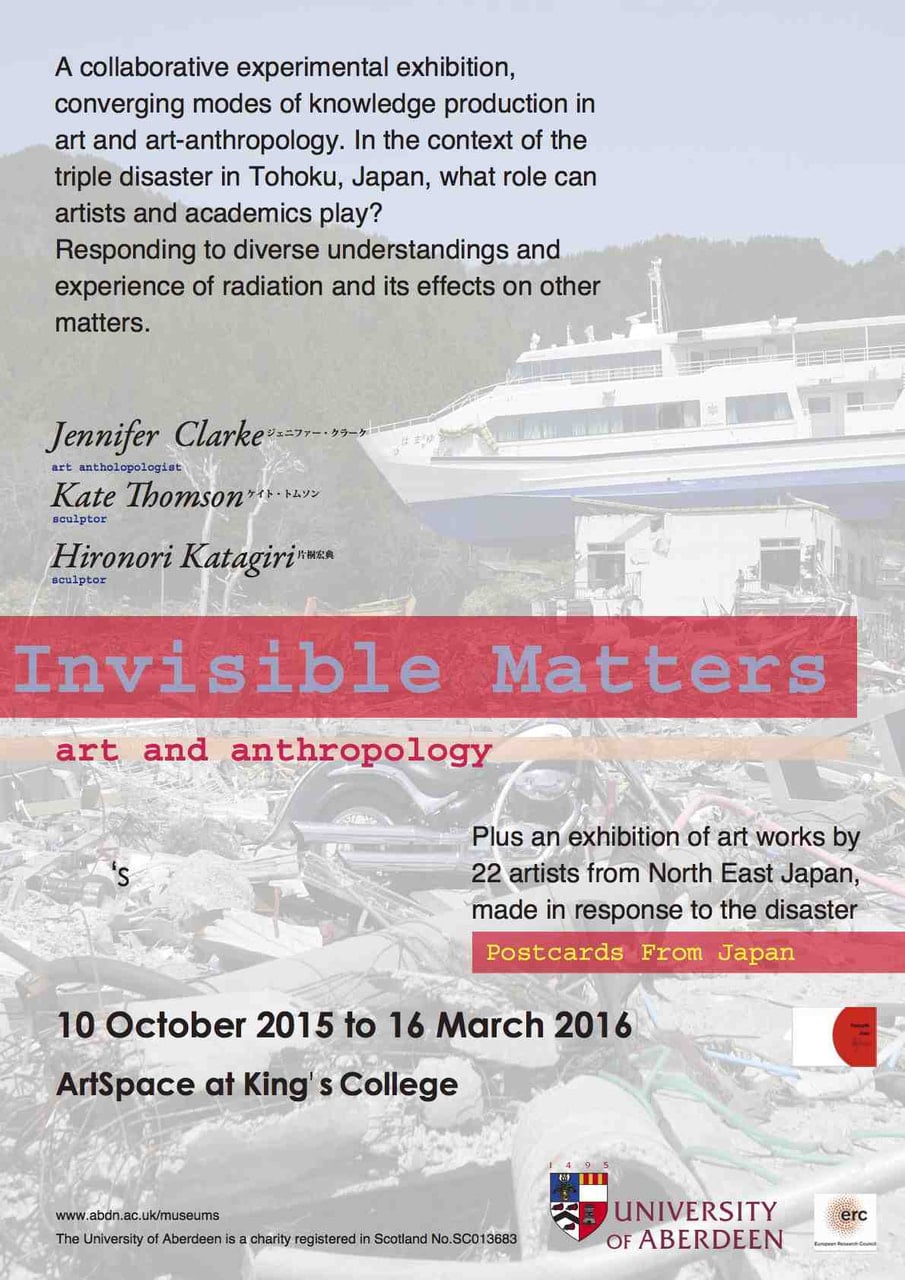「Invisible Matters」展
2015年
 ジェニファー・クラーク、ケイト・トムソン、片桐宏典による311東日本大震災をテーマにした展覧会
ジェニファー・クラーク、ケイト・トムソン、片桐宏典による311東日本大震災をテーマにした展覧会
| 会期 | Wednsday 10th October 2015 – 16th March, 2016
Opening Party at 17:30~ on 10th October 2015 |
|---|---|
| 開場時間 | 10:00-17:00, admission free |
| 会場 | Art space, Aberdeen University, Scotland UK |
| sponsor | Jennifer Clarke is sponsored by the European Research Council |
| 協力 | NPO 岩手未来機構 |